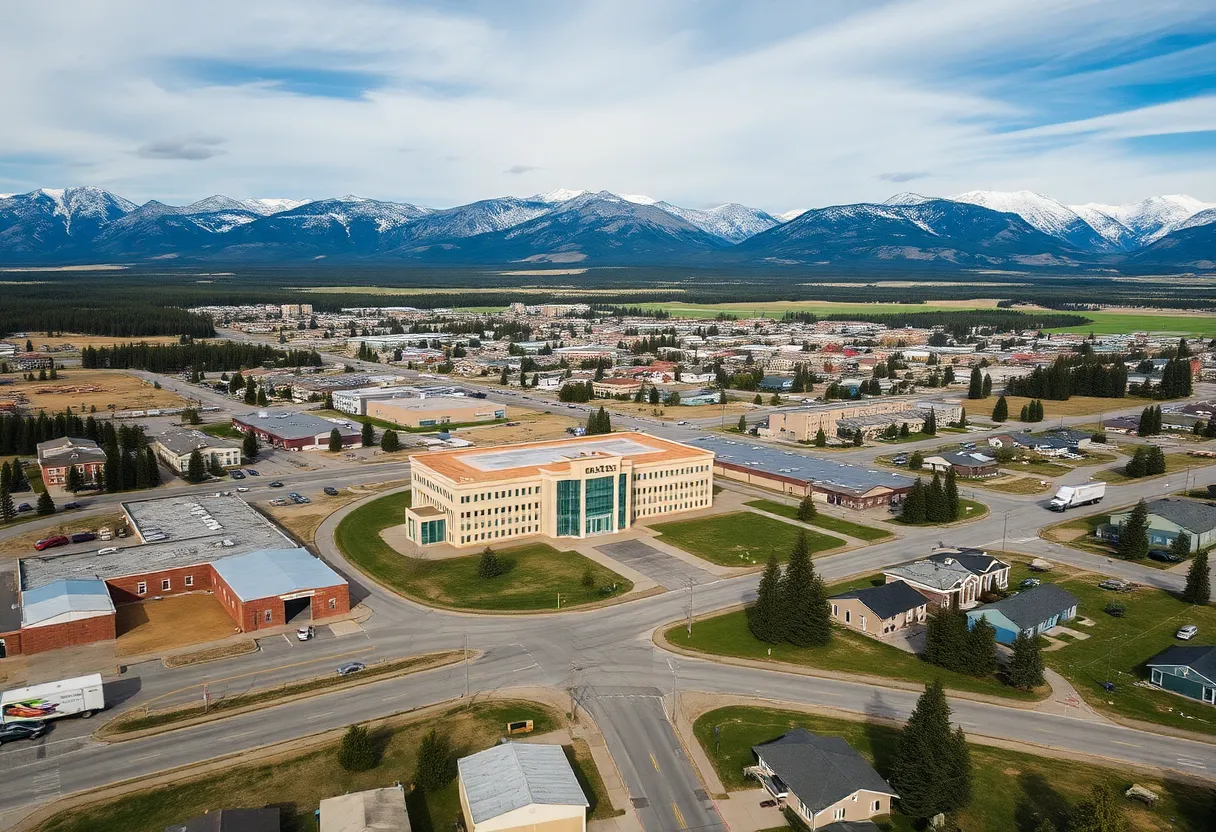News Summary
The sudden closure of the Center for Asbestos Related Disease in Libby raises concerns for a community long impacted by asbestos.
Closure of the Center for Asbestos Related Disease Shakes Libby, Montana Community
In a sudden and shocking turn of events, the Center for Asbestos Related Disease (CARD) clinic in Libby, Montana, was closed down on May 7, 2025. This abrupt closure came about when the Lincoln County Sheriff’s Office executed a court order to seize the clinic’s assets, serving as a stark reminder of the ongoing struggles faced by communities heavily impacted by asbestos exposure.
The Legal Battle Behind the Closure
The closure came in the wake of a contentious lawsuit filed by the BNSF Railway Company, which resulted in a hefty judgment against CARD for $3.1 million. A jury found in 2023 that CARD had committed fraud by signing up patients for government benefits despite claims of them not being truly ill. The ramifications of this ruling are evident, with over 2,000 diagnoses made by CARD being scrutinized, and 337 of those being ruled as false.
For a community of approximately 3,000 residents who have long suffered from ailments caused by asbestos exposure from a nearby mine, the implications of this verdict and subsequent clinic closure have sparked fears of deteriorating public health. Many of these residents were exposed to asbestos dust stemming from a mine that was operational for decades, generating severe health complications for individuals in the area.
The Legacy of the Libby Mine
The asbestos mine located near Libby, which produced vermiculite (known to contain hazardous asbestos fibers), operated from the 1920s until its closure in 1990. Its decades-long activity resulted in a severe environmental crisis, prompting the U.S. Environmental Protection Agency to declare a public health emergency for the region back in 2009 due to extensive asbestos contamination.
A Lifeline for Asbestos Victims
CARD has played a crucial role for residents of Libby for over 20 years, offering health screenings and monitoring services targeted at those suffering from asbestos-related diseases. Initially established in 2000 as part of St. John’s Lutheran Hospital, it transitioned into a non-profit organization in 2003. Yet, even following its bankruptcy declaration spurred by the jury ruling, CARD was allowed to continue operating under a settlement with federal authorities, administering essential services to the asbestos-stricken community.
Concerns Over Public Health
The recent court order to seize CARD’s assets has put a looming question mark over the future and ongoing operations of the clinic. Many fear that the closure could drastically impact community health, diminishing access to crucial screenings and health services related to asbestos exposure. With the substantial funding stream from the Centers for Disease Control and Prevention (amounting to about 80% of the clinic’s budget) now being called into question, the path ahead looks murky for this vital healthcare resource.
Tracy McNew, the Executive Director of CARD, has expressed alarm over the potential fallout, highlighting that the clinic’s collapse could lead to a radical decrease in health screenings for asbestos-related health issues within the community.
Pending Legal Challenges
The complications surrounding CARD do not end here, as there is also a pending local lawsuit accusing the clinic of medical malpractice and wrongful death. This relates to the clinic’s alleged improper prescribing of opioid medications, further complicating an already dire situation for the organization and its patients.
A Community at a Crossroads
The closure of the Center for Asbestos Related Disease marks a critical juncture for Libby, with profound implications for those exposed to asbestos. As the dust settles on this contentious legal battle, concerns continue to mount about how the community will cope without its lifeline for asbestos health management.
As BNSF Railway remains embroiled in legal turmoil regarding its role in asbestos pollution, the residents of Libby face an uncertain future. The collective anxiety surrounding public health, coupled with the existing legal entanglements, paints a sobering picture for a town that has long battled the repercussions of asbestos contamination.
The repercussions of the clinic’s closure extend far beyond legal issues; it echoes the struggles of a community defined by its resilience in the face of persistent health challenges. The future of healthcare in Libby now hangs in the balance, emphasizing the pressing need for continued support and advocacy for those suffering from the remnants of asbestos exposure.
Deeper Dive: News & Info About This Topic
HERE Resources
The Closure of Libby’s Asbestos Screening Clinic: A Public Health Crisis
Asbestos Screening Clinic Closure Leaves Libby Residents in Jeopardy
Asbestos Clinic Closure Sends Shockwaves Through Libby Community
Asbestos Trade in India: A Carcinogenic Legacy and Ongoing Controversy
Family Seeks Witnesses After Kent Woman Dies from Mesothelioma
AEW’s EJ Nduka Parts Ways After Contract Expires
New Hope in the Fight Against Malignant Pleural Effusion: Exciting Pipeline Developments
Jury Awards $3 Million in Shocking Mesothelioma Case
Revolutionary Treatment for Mesothelioma: FDA Approves Injectable Opdivo
Fly-Tipped Asbestos Raises Safety Concerns in Finchley
Additional Resources
- KPAX: Libby Asbestos Clinic Shuttered After Court Order
- Wikipedia: Asbestos
- Missoulian: Libby’s Asbestos Clinic Closure
- Google Search: Asbestos Exposure Effects
- The Western News: Libby’s Clinic Closed Following Court Ruling
- Google Scholar: Asbestos Related Diseases
- Citizen Tribune: Asbestos Clinic Forced to Close in Montana
- Encyclopedia Britannica: Asbestos



















